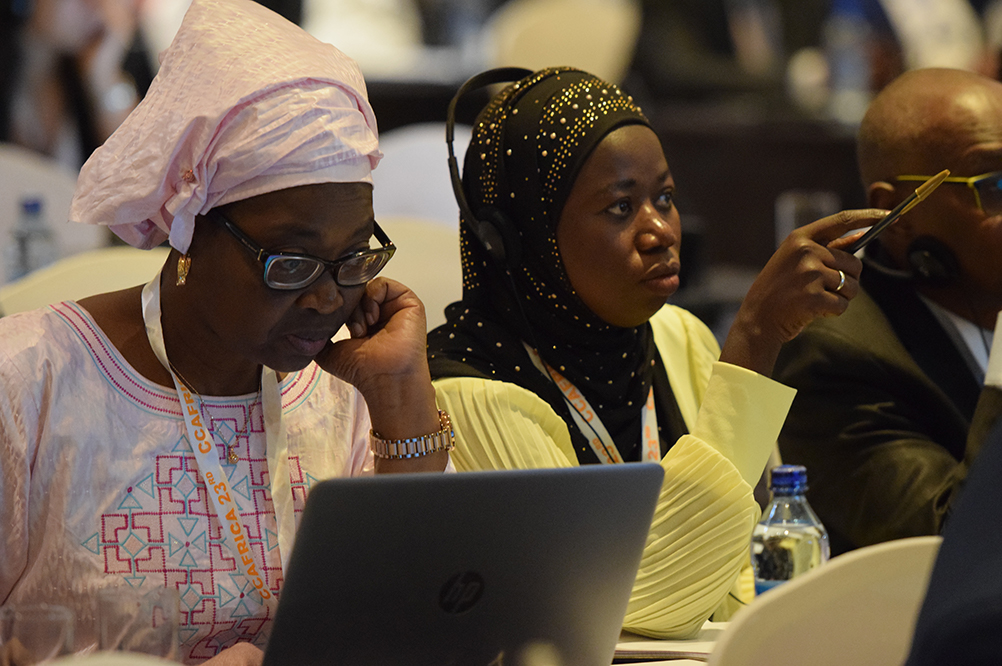The CCAFRICA Region - Regional Coordinator Uganda
The ‘Coordinating Committee for Africa’ was established by the Codex Alimentarius Commission in 1972 with a mandate to “exercise general coordination in the preparation of standards relating to the region of Africa”. The committee held its first meeting at FAO in 1974, with 19 countries in attendance.
As the new regional coordinator begins their term, the Agreement of the African Continental Free Trade Area (AfCFTA), which came into effect in May 2020, has reinforced the need for an efficient and effective system for managing sanitary and phytosanitary measures, in particular food safety, across the continent as its borders open for trade.
The regional coordinator is based in the Uganda National Bureau of Standards, a statutory body under the Ministry of Trade, Industry and Co-operatives which oversees, as part of its mandate, the promotion and use of standards.
As regional coordinator, Uganda intends to engage closely with countries via surveys, webinars and workshops to identify needs and emerging issues, create awareness of priority food safety issues and of Codex standards. A pilot study will also explore the food safety situation in broader terms across the region. By strengthening engagement with regional bodies such as the African Union, the African Organisation for Standardisation and the African Continental Free Trade Area Secretariat, Uganda also aims to enhance advocacy work in the region.
CCAFRICA Coordinator
All information on Codex is public and free.
For regional enquiries contact:
CCAFRICA Secretariat
Uganda National Bureau of Standards Plot 2 - 12, Bypass Link, Industrial
& Business park, Kyaliwajala road,
P.O Box 6329 Kampala, Uganda
Tel: +256 (041) 7333250 / 0417333251 / 0417333252
Email: [email protected]
Web: www.unbs.go.ug
CCAFRICA hears calls for further investment in food safety for greater market access
More than 130 participants from 31 Member Countries, 5 Observer Countries and 7 Observer Organizations are gathered in Nairobi, Kenya for the 23rd session of the FAO/WHO Coordinating Committee for Africa, which kicks of the new round of regional consultations that take place every two years in Codex.
Codex standards underpin regulatory, scientific and technological capacities
Opening the meeting, the Deputy President of the Republic of Kenya, William Ruto called for increased funding to programmes geared towards enhancing food safety and emphasised the need to strengthen the regulatory, scientific and technological capacities throughout the food value chain to facilitate those innovations that will shift food production and consumption towards greater sustainability.
“It is our conviction that the standards of Codex Alimentarius are necessary to underpin efforts to strengthen the regulatory, scientific and technological capacities throughout the food value chain”, he said.
Increasingly complex and vast food value and supply chains pose a challenge to food safety. “I assure this session of the continued support by the Kenyan Government for the efforts of the standard-setting technical working groups under the Codex Alimentarius Commission”, said Ruto. “As we embark on improving standards, expanding productivity and enhancing market access, we must consolidate our capacities in the related areas of risk analysis, trust-building and public engagement”.
Mwangi Kiunjuri, Cabinet Secretary, Ministry of Agriculture, Livestock and Fisheries, Kenya, said the agricultural sector had “made great steps to enhance market access through strengthening food safety infrastructure as shown by the development and adaptation of various Codex standards”.
“It is my expectation”, said Kiunjuri, “to take advantage of the wealth of knowledge brought together at this session, to come up with practical recommendations to enhance consumer confidence in the food that is traded across Africa and the world”.
Charles Bebay, FAO Representative to Kenya, underlined how FAO was working to “ensure that food safety remains high on the political agenda” and of the importance of aligning food safety strategies across sectors and borders.
WHO estimates that 91 million people in the region fall ill from consuming contaminated food every year and 137 000 die as a result. Rudi Eggers, WHO Representative to Kenya, said “countries in the region are increasingly realising the importance of Codex standards to ensure that populations are not only protected from food safety hazards but that their products can be traded globally”.
Mr. Steve Wearne, Vice Chair Codex Alimentarius Commission, said: “We’re on the verge of realising a cohesive, verifiable farm-to-fork food safety regime benefiting the health of Africans and further opening of global export markets to African food products. Codex standards will be key to realising this objective”.

Delegates will discuss a range of regional standards at CCAFRICA23
The meeting runs until Friday and delegates will discuss a range of regional standards as well as the new 2020-2025 Codex Strategic Plan which will set the course for Codex work in the region for the next five years.
Read more
Follow the CCAFRICA23 agenda.








Leave a comment